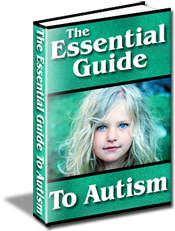How To Overcome Autism and Anxiety On Socialization
Click Here To Know The Simple Methods To Effectively Spot The 31 Signs of Autism
Children with autism are often misunderstood, especially when it comes to autism and anxiety on socialization and it?s not surprising that the most loving parents can make some mistakes.
The body of information about this condition is vast, but some of it is conflicting. This can leave even the best parents feeling confused and overwhelmed. One thing no parent wants to see is his or her child is suffering in any way. When it comes to autism and anxiety of socialization, there is some conflicting information out there about the children and what they might really want to accomplish.
For a long time it was thought that children with autism did not want to socialize. Some parents would feel bad about trying to get them to relate to other children their age, as it brought about a lot of frustration for the child. Autistics can lack many of the basic social skills needed to make and keep friends. They aren?t good with eye contact, initiating conversations, and relating to peoples emotions. Even some children who do not have this condition can have problems in these areas sometimes.
For a long time it was thought that autistic children did not seek out or did not want to develop these types of social relationships, and would rather be ?alone.? There have been many studies that have proven this theory to be false. They do want to relate, and sometimes they want this very badly, but they just don?t know how to go about it. This, as you can imagine, leads to enormous amounts of frustration for the child, and of course, for the parents. The anxiety that comes with this can be overwhelming and might cause setbacks.
People mistakenly think these children prefer to stay away from their peers because they show signs of preferring the company of adults they know, or they seem to show a preference to play by themselves. This isn?t necessarily a preference for many of them. They simply cannot handle the anxiety of trying to build and maintain relationships that they do not have the skills to hang on to.
Avoidance and withdrawal are their way of coping with the overwhelming anxiety of the situation. A child thrown into this situation without preamble or warning will suffer great anxiety and frustration. However, knowing how to proceed can be difficult for any parent. Sometimes, there are no easy answers.
Each child has to be evaluated individually. There are some great programs that help children with the basics of socialization before they are presented with actually trying it. Some children have severe problems, and the choice to put them into special educational classes does have drawbacks, but putting a low-functioning child into regular classes has huge drawbacks as well.
Though taking time to evaluate a child before making a decision will help, you can never really eliminate the effects of autism and anxiety on socialization for a child with this condition. You just have to keep up, readjust when needed, and give them all the support you can.
By Rachel Evans. Sign up for a free newsletter for more information on http://www.essential-guide-to-autism.com/ autism and anxiety on socialization.In the newsletter you'll find out more about the signs and symptoms of autism.
Labels: abilify_autism, animal_autism, asperger_autism, autism, autism_awareness

